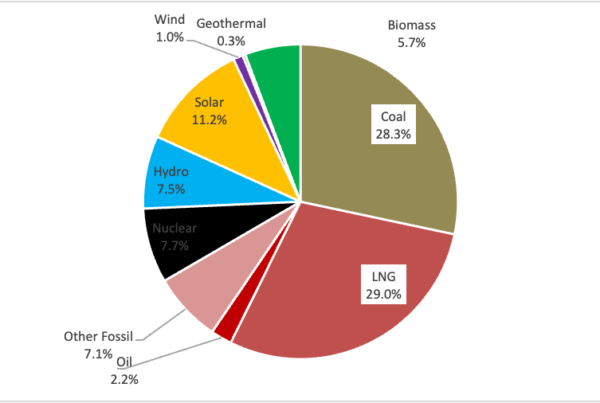On December 6th2013, ISEP released recommendation for the ‘Basic Energy Plan’. This recommendation focuses on 4 main problematic structural deficiencies with the current energy policy in Japan.
This is an abridged version of Policy Recommendation for the “Basic Energy Plan” that proposes realistic and necessary energy policy by pointing out serious problems on the current administration’s “Basic Energy Plan”.
A detailed version was submitted to the “Advisory Committee on Energy and Natural Resources Subcommittee on Basic Policy” on December 5th2013. (Listed as ‘Opinions from the Public’, for the Basic Policy Subcommittee December 13th, 2013)
1. Fundamental issues regarding the ‘Basic Energy Plan’; what have we learnt from the Fukushima Nuclear Accident?
The significance of the ‘Energy and Environment Council’, as well as the collapse of overall governance.
Until now METI have had exclusive jurisdiction of the domestic energy policy and has led system reviews. Rather than bureaucratic policy-making, however, politics that reflects public must have jurisdiction of the energy policy, and a new policy review with a new agenda should be formed.
METI does not have legitimacy.
While it has not be done to any organizations and individuals who must deserve, the political, social and moral responsibility surrounding the Fukushima Daiichi Nuclear Accident must be questioned. The Advisory Committee on Energy and Natural Resources still holds jurisdiction over Nuclear Power Energy Policies and after 3.11 clearly has a lack of legitimacy.
Absence of public consultation and participation
Regarding any policy revisions to the basic energy plan, it is crucial that public consultation and participation is involved in any restructuring process.
2. A lack of sense of crisis exists and there is a continuing sense of danger.
Reconsider the current regulatory requirements based on the reasons for Fukushima Daiichi Nuclear Accident
The root of the problem is that without investigations into the reasons for the Fukushima Daiichi Nuclear Accident, the current regulatory requirements have been established. National and Local Nuclear Disaster Management systems have not seen any improvements.
Taking into account the Fukushima Nuclear Accident, a review of the Nuclear Damage Compensation Criteria is needed.
Although Nuclear Power operators must bear insurance for unlimited liability, in reality the country provides the final guarantee. For the amount of damages that can be expected, significant cost measures in terms of financial reserves and insurance is necessary (Totaling trillions to tens of trillions of yen)
Continuing problems of the Fukushima Plant management and contaminated water
It is an absolute priority, that site containment of the melted down fuel rods from the nuclear accident among other contamination problems are resolved.
Towards a sustainable and fair ‘Post TEPCO system’
To minimize the burden on the public a resolution to the nuclear incident must be accomplished. In order to pay damages and provide a stable power supply, TEPCO should go into legal liquidation and its role be split. Also the prototype fast breeder reactor Monjyuas well as Rokkasyoreprocessing plants should be decommissioned.
3. From the current confusion and chaos, toward ‘Nuclear Zero’ ; The absence of Transition management.
The restarting moratorium; restarting is not even at the discussion stage.
A plan for “transition management” must be designed in order to light up the future of “Nuclear Zero.”
Power supply and demand measures; beyond discussions about “enough power?”.
We now have over 2 years of know-how and experience of “Nuclear Operation Zero” in respect of power supply and demand measures and further and deeper power saving measures, Demand Side Management (DSM) and renewable energies should be introduced at an accelerated rate.
Fossil fuels cost burden reduction measures: improvement of corporate management and global warming countermeasures
The restart of Nuclear Plants would pose a huge risk to society as a whole and the cost burden would be enormous. Energy conservation, as well as the full-scale spread of renewable energies should be at the center of the Energy policy.
Management problems of power companies: a 3rdoption apart from price increases or bankruptcy there are 3 roads.
Power management should be supported on a temporary basis by the government. In the future consignment mechanism needs to be constructed after separation of power production from power distribution and transmission. Regarding nuclear power companies, accounting fraud about reactor decommissioning needs to be stopped, and the decommission activities should be Nationalized.
Transitional nuclear power must meet prerequisite conditions
Prerequisite conditions are as follows. New Regulatory requirements based on the Fukushima Nuclear Accident, as well as full implementation of additional safety measures. The surrounding areas Disaster Prevention measures are fully implemented. Nuclear damage compensation criteria are met based on the Fukushima Nuclear Accident. Spent nuclear fuel total volume control agreements as well as insurance of interim storage locations, with several hundred years agreement. Furthermore, consent based on deliberations with surrounding area residents as well as the public.
Social agreement in each region and national consensus.
In a truly democratic process, great numbers of citizens are in agreement not only at national level but also regional level, and have participated in policy-making efforts toward the realization of a Nuclear Zero society,
4. The sustainable energy society picture.
The sustainable energy shift
A sustainable society in regards to natural resources, the environment and economics must be established, with development of renewable energy as well as energy efficiency. Clear targets should be set using the “backcasting” approach.
Decentralized and an open energy society
Decentralized, autonomous and open energy systems should be constructed as well as the diffusion of renewable energy based on principles of “community power” and following social consensus.
A new energy market would lead to the construction of an internationally competitive energy industry.
The competitive advantage from the establishment of global renewable energy industry will lead to new energy business models in developed and developing countries.
Dealing with climate change issues.
As a developed country within the Global Community we must fulfill our responsibilities, and thus must adhere to the 2050 eighty percent(80%) reduction target.





